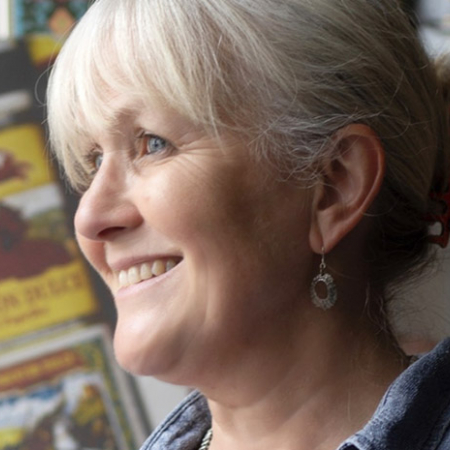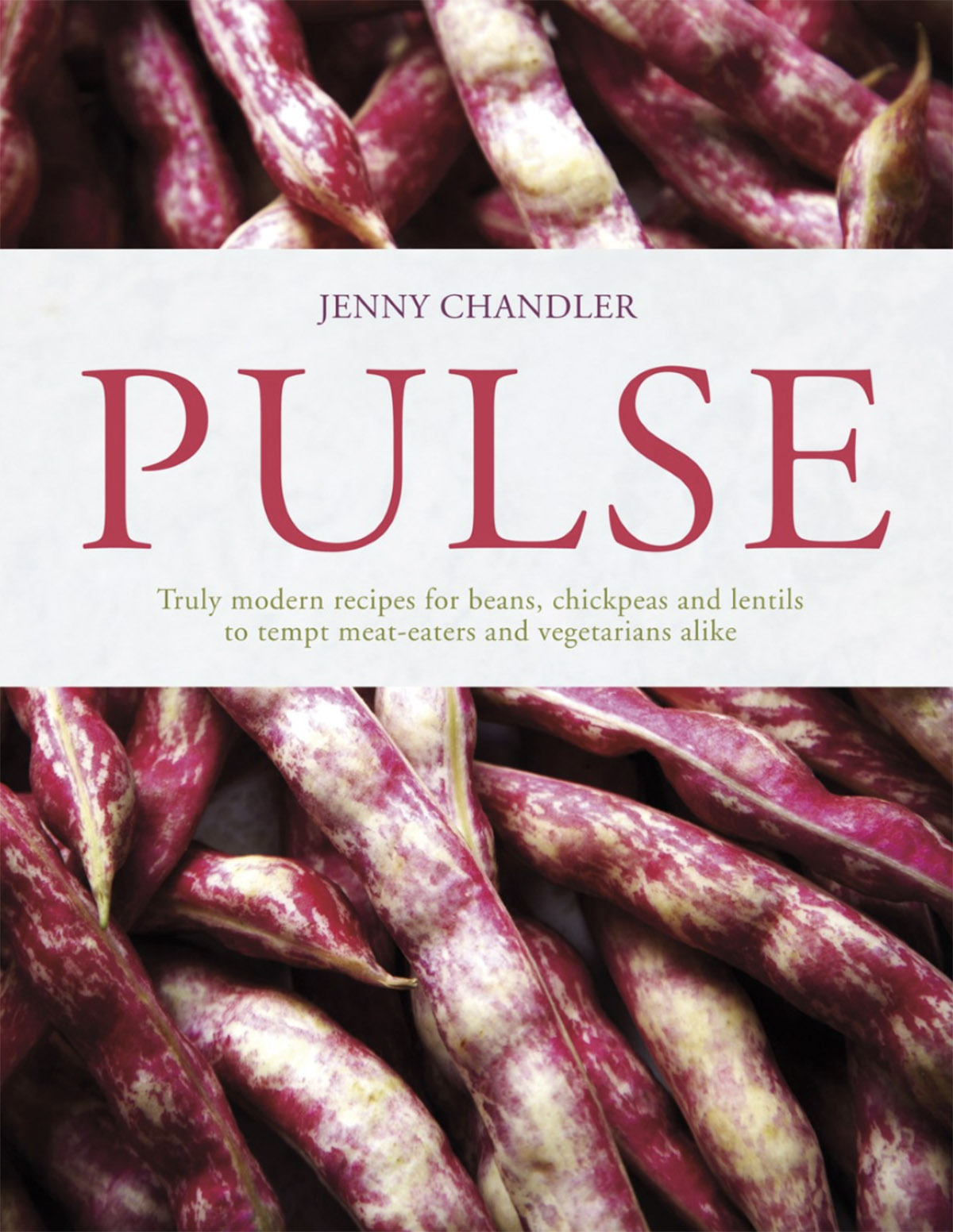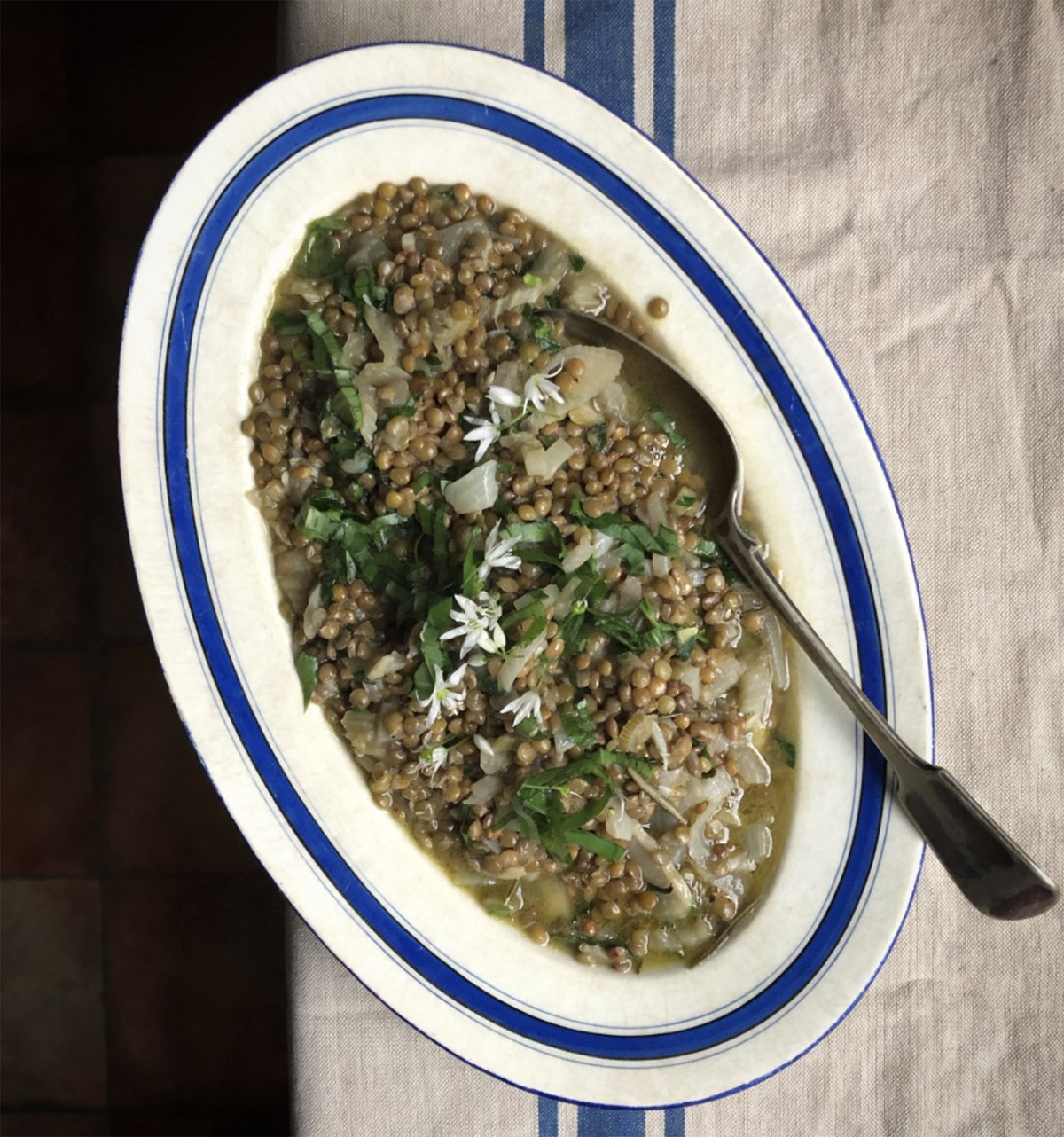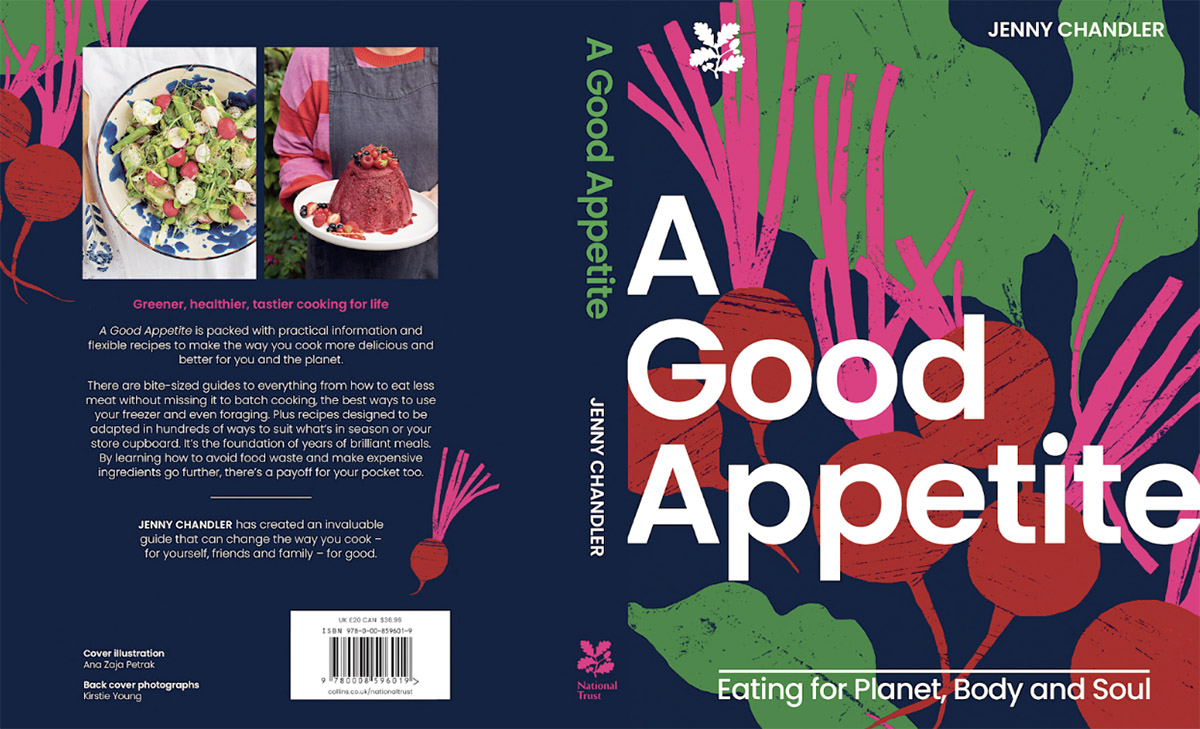March 17, 2023
Chef, author and teacher Jenny Chandler, chatted to Luke Wilkinson about the joy of teaching kids to cook, her unending love for pulses and the potential of British fava beans.


After university I ended up working on a sailing boat as a self-taught chef. I did seven years working for an Italian family – we went on two round the world trips! In the next few years I spent a lot of time in the Mediterranean and Caribbean, but because I was cooking for Italians, Mediterranean cooking was at the core of it all.
When I came back to Britain I started off working in restaurants and catering, but I realized over time that my thing was not only sharing the food, but also sharing knowledge and the excitement of it all. Not long after that I started teaching cooking classes upstairs at a wonderful shop on Portobello Road called ‘Books for Cooks’.
A whole range of different things. I teach courses at places like the Leith's School of Wine in London, and the Bertinet Kitchen in Bath. My students are usually enthusiastic amateurs – food lovers.
For instance, I did a class a couple of weeks ago in Bath which was all about how to make your meat go further. The idea was to talk about how you can invest in small amounts of really high welfare meat, and ask how you can really stretch that out. Pulses are particularly good for that, actually.

Chandler’s 2013 cookbook, Pulse.
“Another thing that excites me about pulses is their versatility, and how incredibly delicious they can be. You can really up your game when you open up your larder and use all of these amazing ingredients that have been overlooked.”
I am fairly obsessed with pulses and whole grains. Historically, that's how mankind extended their meat: by using other sources of protein. I see meat, fish, and dairy as a real indulgence nowadays – the cherry on the cake rather than the main player.
Another thing that excites me about pulses is their versatility, and how incredibly delicious they can be. You can really up your game when you open up your larder and use all of these amazing ingredients that have been overlooked.
For the last six years I have been working with the Humane Society International on running workshops that are all about inspiring and educating chefs about the wonderful opportunities in the plant world.
The workshops are again about reducing the amount of factory farmed meat on their menus and giving them vegan and vegetarian options. Pulses and grains are the place to look for that as they’ve got versatility, nutrition, and help create a healthy budget.
I think this is a massive opportunity to get lots of people eating a more nutritious and sustainable diet, and I feel passionate about getting pulses and whole grains onto people's plates rather than a meat replacement that has been conjured up in a lab somewhere.

Green lentil stew
I think British people are becoming more used to eating pulses. It's tricky, because obviously the people I teach are people involved with food and there is an ever-increasing interest in food from different cultures and in tasting different things.
More people are realizing that you can make something like a dahl for pennies. It is extraordinarily cheap and can taste absolutely fabulous if you cook it with some interesting spices or add some in at the end to finish it off like a tadka.
Places like Brindisa who have introduced top quality Spanish ingredients into this country or Bold Bean Co. have helped people realize that the bean doesn't have to be something for people who are scrabbling around on the poverty line, it can also be an indulgent treat. There are more and more restaurants serving top end pulses and more food writers interested in them.
If you had said 25 years ago that every single kid in Britain would view hummus as sort of part of their culinary heritage, you'd have thought, ‘what are you talking about!?,’ but as soon as you puree any pulse — especially if you puree with things like sweet roasted vegetables — children are up for eating it.
Firstly, my daughter was 10 years old at the time. I'd already written one kids cookbook called 'Cool Kids Cook’, but I just found that most of the children's cookbooks focus on baking sweet treats. One way to get kids excited about food is to get them involved in the cooking, but why not get them excited about the food that you actually want them to eat? Or about the foods you think they're going to develop an appetite for?
It can be empowering for children to cook a meal rather than cook a cupcake. When my daughter was 8 or 9, and I said, ‘We’re going to cook supper together tonight’, everybody was thrilled about it and thought it was wonderful!
In 2016 I worked for the Food and Agricultural Organization at the UN (FAO) during the International Year of Pulses. My husband also makes wildlife films, so I hear first-hand about loss of habitat, and as a result, sustainability became very ingrained in how I think about food.
Just before I wrote Green Kids Cook, Greta Thunberg came to Bristol for one of the school strikes, and what struck me was the amount of kids there. Initially I thought, ‘oh, they all want the day off school!’, but when she spoke – it gives me goosebumps to think about it – everyone was completely silent. Thousands and thousands of kids, from primary school age to teenagers were all silent, just listening to her.
So with the book I wanted to give kids conscious decisions they can make that they feel can really make a difference. It was also just a fun book to write because I love working with kids. I think it's so sad when children aren't excited about food because for me, it's one of the most exciting things in the world. It's the one thing you have to do a few times a day – feed yourself. If you can't make that wonderful experience, I think that’s a shame. Especially if you are lucky enough to live in a culture where food is accessible for most people.
Well, fava beans are the original UK bean, which we many Brits are reacquainting themselves with as an ingredient largely thanks to the pioneering company, Hodemod's. Here, we don't really live in a great climate for growing beans - peas are another matter -, but fava beans have been around since the Iron Age and were one of the main sources of protein in our diets. They've never disappeared because farmers have kept them in their rotations as they’re a fantastic cover crop.
I think one of the reasons that fava beans are leading the way is that farmers have a history of growing them here, they're not scared of growing them. Farmers are always going to be wary of investing money and time in a completely new crop, as they might feel like it's an experiment that might go wrong. But fava beans are not new territory, and it absolutely makes sense to grow them. It’s not like we are suddenly being these magicians saying, 'wow, here's this fantastic discovery!'. It's actually looking back at our own food heritage.
“Farmers are always going to be wary of investing money and time in a completely new crop, as they might feel like it's an experiment that might go wrong. But fava beans are not new territory, and it absolutely makes sense to grow them.”
Sometimes I will literally just cook split fava beans with a little bit of garlic and some water, then add different sorts of seasonings to them as well as loads and loads of extra virgin olive oil then use them as a purée. You can use it as a sauce base for roasted veg.
I've actually got a few fava recipes on my blog, one good one is for Bessara soup – the classic Moroccan soup. It's just garlic, onion, a bit of carrot, beans and cumin, coriander, and all those sorts of classic flavors. It's just really honest and comforting. Add a big squeeze of lemon juice at the end to kind of lift it and to help you absorb the iron more efficiently.

Chandler’s April 2023 release – A Good Appetite: Eating for Planet, Body and Soul
I’ve just written a book called, 'A Good Appetite: Eating for Planet, Body and Soul' which is coming out in April. I wrote it for the National Trust and the fava bean purée recipe I mentioned is in there.
Further into the future I’ve got another book up my sleeve – I haven't pitched to a publisher just yet. It will be pulse-centric, because I just feel like pulses are one of the keys to food for the future and people will constantly be thinking of different ways to talk about and take different approaches to cooking them, whether they're people who want quicker, faster food, or people who are cooking from scratch. With pulses there’s always a new niche.
Disclaimer: The opinions or views expressed in this publication are those of the authors or quoted persons. They do not purport to reflect the opinions or views of the Global Pulse Confederation or its members.